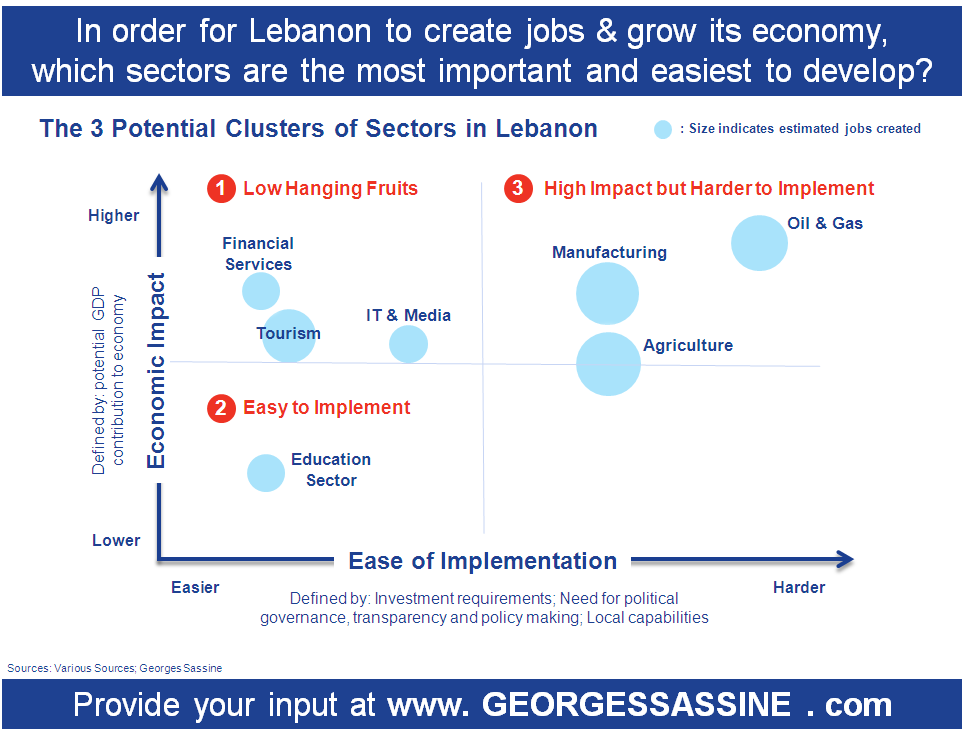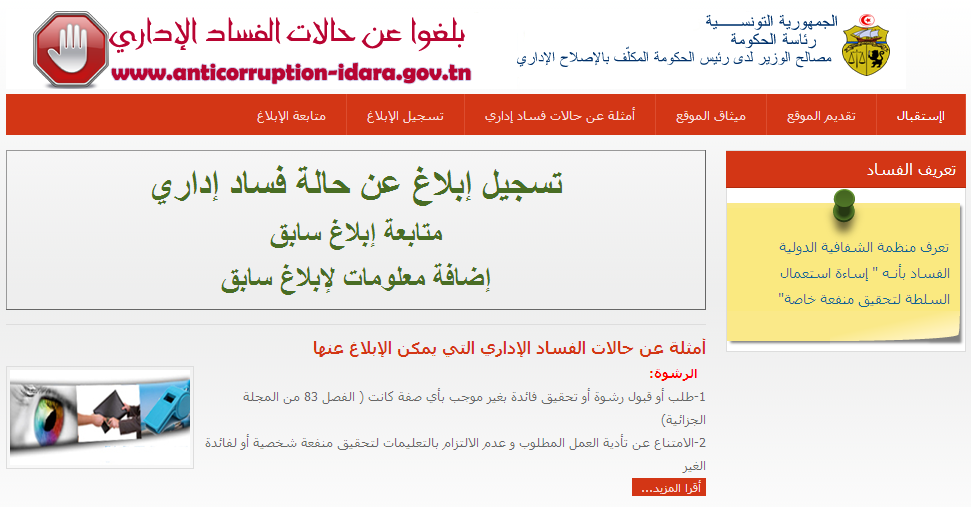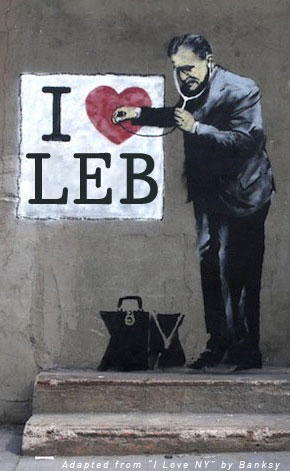In order for Lebanon to create jobs and grow its economy, policy makers should identify the sectors and industries that will have the highest impact on Lebanon’s economy.
One way to go about this analysis is to compare potential industries along three variables:
1. The first is the industry’s potential contribution to Lebanon’s economy.
2. The second factor to consider is how easily these industries can be developed. This includes capital investment requirements; the need for new policies and regulations; and the availability of local talent and infrastructure to develop these industries.
3. The third factor is the number of new jobs created by industry. Some sectors are more labor intensive than others, which is an important element to consider.
I attempt to map different industries Lebanon can further develop along these three variables considering both quantitative and qualitative measures.
Please help me refine this analysis with additional insight and data you may have.
A summary of key findings include:
IT & Media industry
● Description: Hardware and software; cyber security; new and traditional media.
● Economic impact: Arab World online platform ~$1B by 2016 and 276 percent growth; recent studies estimate that when Internet penetration rises by 10 percent in emerging economies, it correlates with an incremental GDP increase of one to two percent.
● Ease of implementation: Talent available; established Media industry
● Jobs created: high level skills required.
● Enablers: Infrastructure; remove red tape; VC funding and support.
Tourism
● Description: Healthcare tourism; and others.
● Economic impact: Healthcare tourism market ~$1.2B; 30% growth potential.
● Ease of implementation: available talent; facilities need upgrading.
● Jobs created: labor intensive.
● Enablers: Investments; infrastructure; remove red tape.
Agriculture
● Description: Traditional agriculture; new/added Value agriculture.
● Economic impact: Exposure to large MENA market; today 80% of Lebanon’s food consumption is imported costing $1.5 Billion per year.
● Ease of implementation: Moderate climate and rich soil; underinvestment in Lebanon’s agriculture sector; low political support.
● Jobs created: labor intensive.
● Enablers: Agricultural policies; investments; infrastructure.
Oil and Gas
● Description: O&G production; LNG, refining & exports.
● Economic impact: Uncertain yet, but neighboring country’s offshore finds ~$80 Billion by 2040.
● Ease of implementation: Limited domestic expertise; high investment requirements.
● Jobs created: the oil and gas industry is a capital intensive industry rather than being labor intensive.
● Enablers: Regulations and governance; transparency; investments.
Manufacturing
● Description: Machinery; food & beverages; pharmaceuticals.
● Economic impact: Lebanon exports a large number of sophisticated products but they constitute only 2 percent of total Lebanese exports. A focus on increasing added value exports could significantly increase Lebanon’s manufacturing industry contribution.
● Ease of implementation: low political support.
● Jobs created: labor intensive.
● Enablers: Industrial policies; infrastructure; financing.




